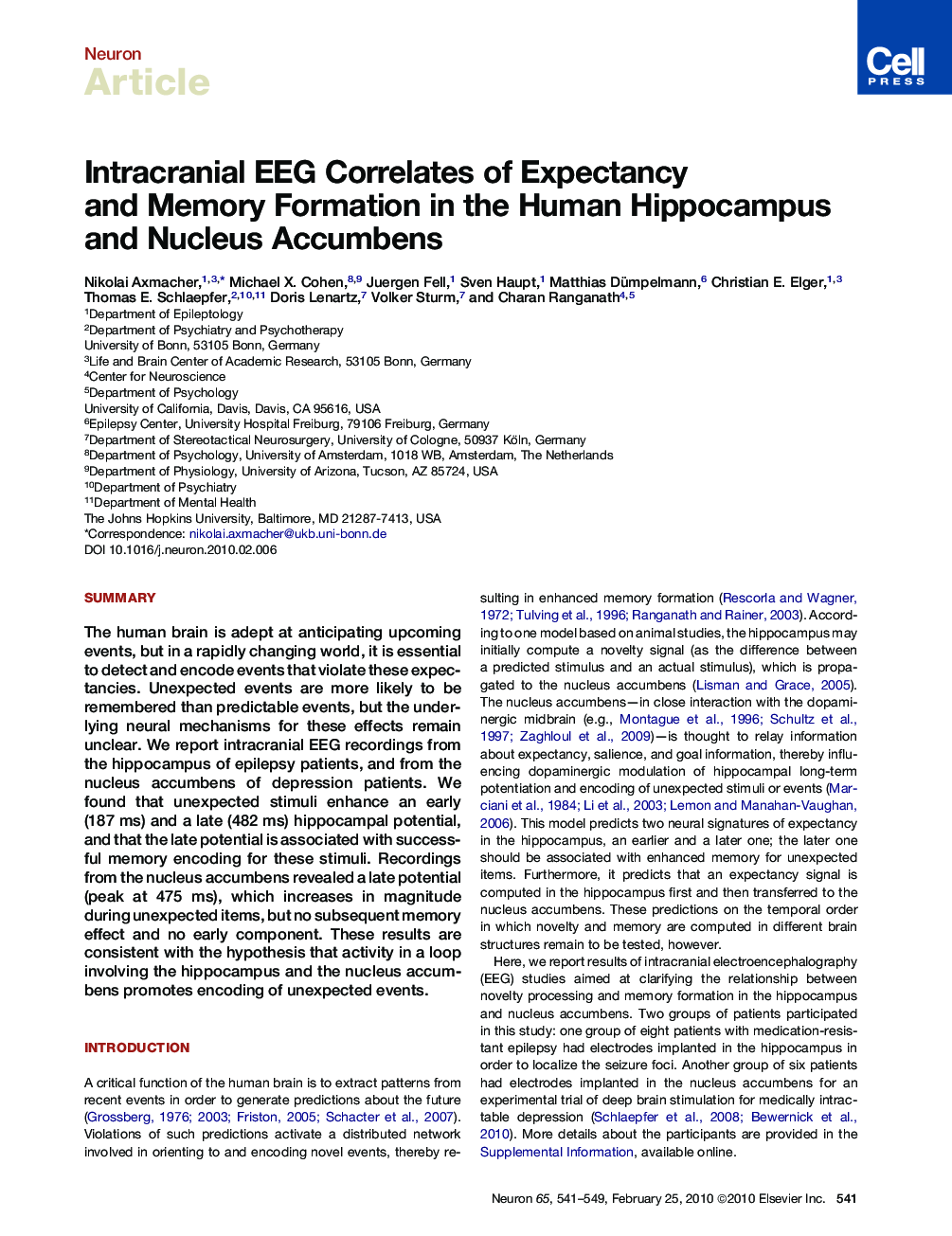| Article ID | Journal | Published Year | Pages | File Type |
|---|---|---|---|---|
| 4322655 | Neuron | 2010 | 9 Pages |
SummaryThe human brain is adept at anticipating upcoming events, but in a rapidly changing world, it is essential to detect and encode events that violate these expectancies. Unexpected events are more likely to be remembered than predictable events, but the underlying neural mechanisms for these effects remain unclear. We report intracranial EEG recordings from the hippocampus of epilepsy patients, and from the nucleus accumbens of depression patients. We found that unexpected stimuli enhance an early (187 ms) and a late (482 ms) hippocampal potential, and that the late potential is associated with successful memory encoding for these stimuli. Recordings from the nucleus accumbens revealed a late potential (peak at 475 ms), which increases in magnitude during unexpected items, but no subsequent memory effect and no early component. These results are consistent with the hypothesis that activity in a loop involving the hippocampus and the nucleus accumbens promotes encoding of unexpected events.
► Early and late activity in human hippocampus reflects unexpected memory processing ► A signal in the nucleus accumbens occurs temporally between the hippocampal signals ► The nucleus accumbens activity reflects unexpected items, but not subsequent memory ► The late expectancy signal in the human hippocampus depends on subsequent memory
